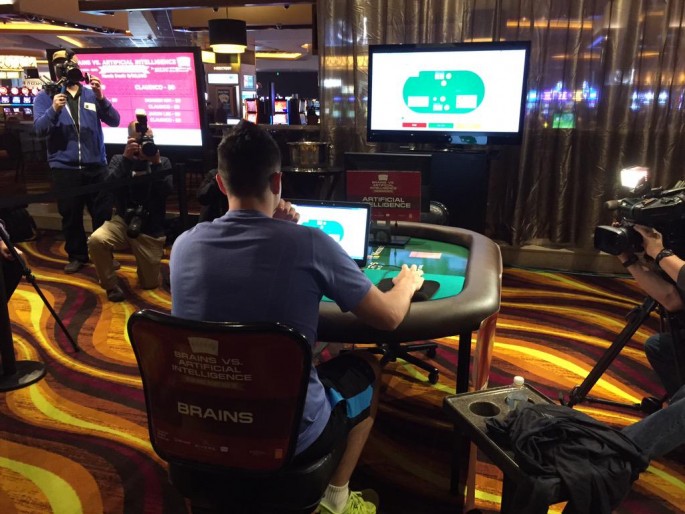Researchers at Carnegie Mellon University (CMU) developed Artificial Intelligence (AI) in its supercomputer Claudico to challenge the world's best poker players. It recently competed against four of them in a two-week poker marathon.
Those top professional poker players included Doug Polk. He is widely considered the best no-limit Texas holdem player in one-on-one games.
Polk has won several games and millions of dollars, according to CBS News. He put his reputation on the line by facing the poker supercomputer Claudico.
Polk referred to the supercomputer as a "cold-blooded killer" because the computer is not frightened after it bets all of its money and then loses it.
During the last two weeks, people from over 100 countries watched online as four top poker players each played 20,000 hands against Claudico at Pittsburgh's Rivers Casino, according to PBS.
The "Brains vs. Artificial Intelligence" competition required each player to play 1,500 hands of poker against Claudico. CMU took various steps to eliminate the factor of luck as much as possible, such as rotating players so they could not compare cards.
Dr. Tuomas Sandholm, a computer science professor at Carnegie Mellon, is Claudico's designer. He said that although the computer bluffs like humans do, its algorithms determine when and how to bluff.
Claudico follows some historic battles between gaming superstars and supercomputers. In 1997 IBM's Deep Blue defeated word chess king Garry Kasparov, and then in 2011 IBM's Watson topped Jeopardy champion Ken Jennings.
However, Sandholm explained that poker tests AI better because chess is a game of "complete information." Unlike chess, in poker the game's state is not known completely during a move.
Besides human vs. computer games, various real-world applications of Claudico's AI also exist. For example, people could have a negotiating tool when buying a car.
Jason Lee was a computer science student before he became a professional online poker player. He is pleased that was part of the "winning team" in the man vs. machine matches.
However, Carnegie Mellon reported that the pros' combining for a $732,000 lead against the poker-playing computer Claudico is basically a tie. The university has plans to update the supercomputer's algorithms in the future.






















